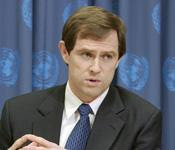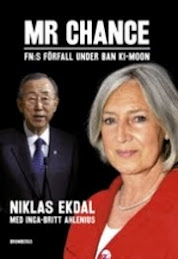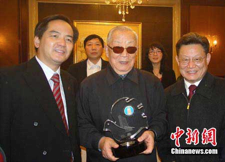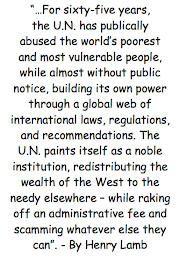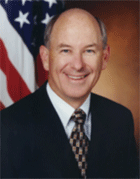Recommendation 1
(1) The DESA Administration should inform the Government of Italy of the cancellation of the newsletter output as outlined in the Project Document.
10. The DESA Administration partially accepted recommendation 1 and stated that the audit noted that 14 out of the 16 defined HR activities in the project document were implemented, while two activities (website for networking, and quarterly newsletter) were not implemented. With regard to the two “outstanding” activities, DESA has to state that the project has an operational website which contains all information for prospective applicants and clients, which is continually updated. The output as defined in the project document is the “establishment, updating and use of a dedicated website for information sharing and networking on all the activities carried out by the office, as well as to receive AE/JPO/APO applications through the use of new technologies.”DESA acknowledges that the project has not produced a quarterly newsletter. However the non-delivery of this output, which was largely compensated by the existence of the web-site, does not require a review/revision to the project document. DESA will advise the Government of the cancellation of this output during the next budget revision exercise. Recommendation 1 remains open pending submission of DESA’s notification to the Government of Italy of the cancellation of the newsletter output as outlined in the Project Document.
Unclear reporting lines between DESA-Headquarters and the Office
11. In the absence of updated guidelines, the Manual for the Chief Technical Advisers, 1992, governs the accountability of the Chief Technical Adviser (CTA) of technical cooperation projects. Accordingly, the CTA is required to report and be accountable to a backstopping officer within the relevant supporting substantive division in DESA. The role of the backstopping officer is to monitor and measure the substantive progress and achievement of the stated project objectives, as well as to provide substantive guidance to the project. In the case of the Italian AE/JPO programme, the Director of the Office is the CTA. The Director, therefore, is required to report to DESA-Headquarters on the results of both the substantive and financial implementation of the project. At the Headquarters level, the newly established Capacity Development Office (CDO) is both the substantive, and financial and administrative support office for the project.
12. The CDO took over the management of the project from the Division for Public Administration and Development Management (DPADM) in April 2009. However, in the changeover, the reporting line between the Director of the Office in Rome and the CDO overseeing the project had not been clearly defined. For example, according to the 17 June 2009 e-mail that the CDO sent to the Director, all financial and administrative requests should be routed through the Head, CDO, to the Finance Management, Programme Support Service. The substantive reporting line, however, was not spelled out. As of the date of the audit, no further clarifications on the Office’s substantive reporting lines had been provided by the CDO, and a technical backstopping officer had not been assigned.
Recommendation 2
(2) The DESA Administration should clearly define the reporting lines for the DESA Office in Rome, as well as appoint a technical backstopping officer to monitor the Associate Experts and Junior Professional Officers Programme in Rome.
13. The DESA Administration accepted recommendation 2 and stated that with the transfer of the project’s management from DPADM to CDO, the substantive reporting lines for project activities have been directly to the Head of the CDO. This arrangement ensures senior level oversight of the project’s activities, and separation of roles and responsibilities between the substantive management of the project, and the administrative clearances provided by the Programme Support Service of CDO. The reporting arrangement was outlined in the 17 June 2009 communication from CDO to the Project (as noted in the audit report). After a period of hands-on experience, and further assessing the requirements of backstopping the project, the Head of the CDO delegated the day-to-day backstopping responsibilities of the project to a Programme Officer in CDO. This revised arrangement was communicated in a message by the OIC of Programme Support Services to the Head of the Rome Project. Based on the explanations provided, recommendation 2 has been closed.
The composition of the selection panel was not guided by a governing policy
14. Within the framework of the initiatives carried out by the Office, a three- member panel supports the pre-selection of candidates for interview on the basis of the profiles indicated by the UN and the specialized agencies and approved for sponsorship by the Italian Government. The panel is headed by the Chief, Human Resources Management, Programme Support Service (the Chief), CDO, and is assisted by two adjunct members. The members of the panel are required to have extensive experience in selecting AE/JPOs for the UN system. The panel reviews all job descriptions and specific requirements from international agencies, screens candidates, evaluates curricula of applicants and pre-selects candidates for interview.
15. OIOS reviewed the composition of the pre-selection panel and found several gaps in the controls. For example, the requirement for the competitive selection of consultants in accordance with the UN Staff Rules was not enforced until 2009, and the same consultants had been engaged during 2006-2008. For example, in 2009, the cost of one consultant amounted to $5,560 for one week. Further, there was no justification for utilizing consultants rather than regular UN staff members on the panel. In 2007 and 2008, the post of the regular staff designated to serve as the third panelist was at the P-3 level, one grade above the AE/JPOs post level. In 2006-2008, the same members, including one consultant, served on the panel. According to the Chief, these practices had been established by the former substantive unit, and had not been reviewed by CDO once it took over the administration of the project. In OIOS’ view, for the purposes of ensuring the proper discharge of its delegation of authority over human resources management of the project, there is a need for DESA to establish a policy to govern the composition of the selection panel.
Recommendation 3
(3) The DESA Administration should establish a policy governing the composition of the selection panel including representation by a gender focal point, term limits and use of consultants.
16. The DESA Administration accepted recommendation 3 and stated that as clarified during the audit briefing, the composition of the Pre-Selection Panel is determined by the Head of the CDO (previously Director, DPADM) and composed of human resource specialists from the UN Secretariat and/or agencies, who are familiar with the HR requirements of these organizations. The Panel is chaired by the Chief of Human Resources, CDO (previously the Chief of Project Personnel Services, TCMS), and depending upon available staffing resources, includes one Human Resources Officer from CDO. The third member of the Panel is selected from HR Officers from the UN Secretariat, specialized agencies, and/or a consultant who has had experience in human resources in an international organization. The Panel is constituted on an annual basis, and serves only for the duration of the mission to Rome (ranging from one to two weeks.) While DESA attempts to have gender balance in the Panel’s composition, this is not always feasible due to non-availability of Panel members. Therefore, while the 2009 Panel did include a female representative, the 2010 Panel did not. In sum, the Department feels the process for defining the Panel is well established and that no further policy is needed. Although not specifically a requirement for this Panel, to ensure a proper gender balance, the Department will endeavour to make every effort to include at least one female representative in future Panels. The use of consultants who have proven HR expertise is acceptable, particularly if there are insufficient human resource officers available in the CDO to be released simultaneously for mission. In adherence to past audit observations on documenting the competitive selection process for consultants, the use of P.104A form to reflect 3 competitors was adhered to for the consultant, and has been in place for the 2009 and 2010 assignments. Based on the explanations provided, recommendation 3 has been closed.
B. Management of the Italian AE/JPO programme in Rome
No analysis of the effectiveness of pre-selection process was conducted
17. The Office conducts preparatory work concerning the analysis of vacancies and job descriptions, as well as the preliminary evaluation of all candidates who applied for the positions by the specified deadline. The aim of the screening and evaluation process is to assign at least a final list of 7 to 8 applicants for each approved job profile. The pre-selection process involves the validation of applications, an initial evaluation and a second evaluation. At the start of each cycle, just after the application deadline, the names of applicants and their related personal data, such as date of birth, address, phone numbers, etc., are entered into the human resources database for validation and processing. Data concerning repeat applicants are also reviewed and updated. On a selected basis, the Office checks the appropriateness of the respective degrees prior to validating them. By the end of the year, a final list of candidates meeting the requirements is generated from the database, and the list is sent to DESA-Headquarters and the donor.
18. The Office conducts an initial evaluation of all the candidates, and verifies their credentials through a scoring system embedded in the database. The system scores the candidates based on pre-determined parameters, including academic degrees and other qualifications, languages, and professional experience. The process can take place parallel to the validation of the applications, provided that a critical mass of applicants have already been entered and reviewed in the database. At the end of the first evaluation, the database automatically ranks the candidates by degree from the highest to lowest score, facilitates searches across different fields, shows the full database profile of each candidate and shows the full application history of the candidate for candidates previously applying for the positions. The validation and initial evaluation of the candidates are done prior to the consultations with the Italian Government on the positions to be sponsored. The second evaluation of the candidates is conducted after the positions and terms of reference have been established, which is done in conjunction with the positions identified, the tools used, and the criteria applied. The panel, which has the authority to review all candidates with both high and low scores, and can use the database to make its own assessment, is presented with the evaluation undertaken by the Office on all suitable candidates. At the end of the process, the panel identifies final pre-selected candidates, who are then entered into the database and assigned to each approved position. DESA subsequently sends the final list to the Italian Government for approval.
19. The pre-selection process takes, on average, six to seven months. OIOS also assessed the merit of the scoring system, which is primarily used to pre- select the candidates during the initial evaluation. The complexity of the pre- selection process and the use of internal tools developed by the Office to ensure efficiency, effectiveness and transparency of the evaluation carried out for applicants are noteworthy. While the scoring system helped the Office to rank the candidates in terms of suitability, OIOS was not able to assess the effectiveness of evaluating the candidates in the first instance without knowing which positions would be available for actual placement. On average, the elapsed time for the first evaluation was about two months, and it takes two full- time staff to conduct the first round. According to the Office, it had never conducted a cost-benefit analysis to evaluate the effectiveness of the process.
Recommendation 4
(4) The DESA Administration should conduct a workflow analysis to identify enhanced methodologies to improve the current pre-selection process.
20. The DESA Administration accepted recommendation 4 and stated that as the Government of Italy has entrusted DESA with the responsibility of carrying out the pre-selection process of potential candidates to be sponsored under the Italian AE/JPO programme, the Department must conduct a pre-selection exercise. Subject to the donor’s agreement for funding, the Department would agree to conduct a workflow analysis, with external expertise, to determine if new methodologies could be considered, which would enhance the current pre- selection process. Recommendation 4 remains open pending submission of the completed workflow analysis and recommendations to improve the current pre- selection process.
The number of AE/JPO participants from developing countries was low
21. The AE/JPO programme is open to both Italian nationals and nationals from developing countries, and participants from developing countries are encouraged to apply for the programme. AE/JPOs are initially appointed for two years, and the cost associated with their appointment is normally sponsored by their respective governments. However, on a case-by-case basis, the contracts of AE/JPOs may be extended to a third and fourth year beyond the initial appointment. In such cases, the Italian Government pays up to 12 months of the allocated costs, as applicable, at 50 per cent across the third and fourth years. In 2006-2009, the number of AE/JPO extensions requested by DESA and approved by the Italian Government totaled 50, of which 9 contracts were only granted a one-year extension on a cost-sharing basis with the Organization.
22. OIOS assessed the distribution of the posts to nationals from developing countries, particularly given the fact that a portion of the costs associated with the AE/JPOs whose contracts are extended beyond the initial period where the Italian Government sponsors 100 per cent of the cost. According to the Office, every attempt is made to solicit the interest of nationals from developing countries. However, OIOS noted that these efforts are on a limited basis, and based on the availability of funding to solicit outside of Italy. For example, the Office mainly advertised the Italian AE/JPO programme on 43 websites, circulated information on the programme through free advertisements and articles in five newspapers and magazines, disseminated information to the public through the organization of targeted public events, attendance at one-day fairs, presentations at universities and press releases and interviews. The information campaigns and solicitations were mainly focused on Italy, and efforts to inform nationals from developing countries had been limited. On average, only 3.6 per cent of all applicants were from developing countries, and only five out of the 139, or 3.6 per cent, of the approved positions were allocated to them. In 2006-20081, these efforts, therefore, resulted in the sponsorship of only 5 developing country candidates by Italy, including two who were granted extensions to the third year under cost- sharing arrangements.
23. The issue of low participation in the UN system-wide AE/JPO programme by nationals from developing countries had been raised by the JIU in 2008 in its report on Junior Professional Officer/Associate Expert/Associate Professional Officer Programmes in the United Nations System Organizations (JIU/REP/2008/2). In the report, the JIU highlighted the need for all donors to extend the programme to more candidates from developing countries as a matter of providing these nationals with training and experience in the area of international development cooperation, and enhance capacity building in developing countries. Despite the Office’s effort to attract and appoint nationals from developing countries, it is OIOS’ view that there is a need for DESA, in consultation with the Italian Government, to intensify its efforts to designate additional posts for these nationals, as well as solicit a wider interest in their participation in the Italian AE/JPO programme.
Recommendation 5
(5) The DESA Administration, in consultation with the Government of Italy, should intensify its efforts to solicit and encourage the participation of young professionals from developing countries in the Associate Experts and Junior Professional Officers Programme.
24. The DESA Administration accepted recommendation 5 and stated that in the context of its ongoing discussions with donors to the AE/JPO programme, as well as during the Bi-annual meetings of the National Recruitment Services and UN Organizations on the AE/JPO/APO Programmes, the Department strongly encourages donors to earmark posts for developing country candidates. Furthermore, in response to a recommendation coming from the 7th meeting, DESA has formulated a trust fund proposal for donor consideration to sponsor developing country candidates (DCC). Italy is one of the few donors (joined by the Netherlands) which actually sponsor DCCs by earmarking posts specifically for those candidates. These efforts are well appreciated by DESA on behalf of the UN. As the earmarking of posts is beyond the control of DESA, the implementation of this recommendation is outside its control and beyond the efforts already being made. Based on the action taken by DESA, recommendation 5 has been closed.
DESA has not recently evaluated the Italian AE/JPO programme to assess its impact
25. One of the overall objectives of the Italian AE/JPO programme is to contribute to the efforts of fostering global development, as well as to promote capacity-building activities as a way to achieving the internationally agreed economic and social goals. In so doing, the immediate objective of the programme is to follow up on current and former AE/JPOs throughout their careers to ensure maximum monitoring of the programme and achievement of the stated objectives. In 2004, the Office conducted an evaluation of the impact of the Italian AE/JPO programme for the first time since its inception in 1972. The main purpose of the study was to identify in a statistically significant manner the orientation and professional careers developed by former Italian AE/JPOs after their assignment. The evaluation also aimed to determine to what extent the Italian economy had managed, throughout the years, to employ Italian AE/JPOs who had not continued with international organizations or otherwise chosen to settle abroad. Finally, the evaluation reviewed data to identify the emerging trends of the programme. The methodology of the evaluation included a survey that solicited the opinions of 1,372 AE/JPO alumni from 1973 to 2004.
26. The results of the evaluation indicated that the programme had significantly met the stated objectives, whereby more than 40 per cent of the respondents indicated that they were still employed in the UN system or in the international cooperation discipline. The survey provided a baseline for the establishment of benchmarks and performance measurements to evaluate the programme in future periods. Importantly, the survey provided valuable feedback on improvements that could be undertaken to strengthen the programme, such as the need for further initiatives to make the programme known to employers outside the UN system. Despite the merits of the evaluation, however, there was no established policy on the frequency that such studies should be conducted. It is OIOS’ view, therefore, that such an evaluation should be conducted at least every five years in order to provide timely feedback to programme managers given the changes and the use of AE/JPOs throughout the UN system.
Recommendation 6
(6) The DESA Administration should conduct periodic evaluations of the impact of the Associate Experts and Junior Professional Officers’ programme in achieving the objectives stated in the Memorandum of Understanding between the UN and the Government of Italy.
27. The DESA Administration accepted recommendation 6 and stated the issue of evaluation of the AE/JPO programme is a broad and complex subject relevant to all donor countries, and discussed in the Bi-Annual Meetings of Recruitment Services and UN Organizations. In the context of those meetings, the Rome Project, on behalf of the Government of Italy, was given the lead in drafting a proposal for a coordinated evaluation of JPO programmes. This proposal, which was prepared by the Office in consultation with a task force made up of representatives of agencies and donors, was presented by Italy to the Chair of the Working Group (Brussels). The Project envisages conducting evaluations on a six year, not five year, cycle. DESA considers the subject of evaluation an ongoing issue related to the AE/JPO Programme (not project) which is being addressed on a continuing basis as part of the programme’s management. Based on the action taken by DESA, recommendation 6 has been closed.
C. Control environment of the DESA Office in Rome
28. OIOS reviewed the effectiveness of the internal controls over financial, procurement, and administrative functions in the Office and found, in general, that the Office had developed a sound system of internal controls over the identification and examination of posts and the provision of advice and operational support to the Government of Italy for the programme’s implementation. In particular, DESA had fostered strong donor relations with the Italian Government and had conducted successfully, on an annual basis, tripartite meetings with the government to review the status of the programme and renew programming and funding. The Office had implemented an effective fundraising strategy between 2006 and 2009, securing approximately $6.9 million in contributions for the AE/JPO programme and in excess of $14 million for the promotion of capacity building activities in DESA. The Office, however, could benefit from strengthening the following controls.
Internal controls over IT security needed strengthening
29. The Office utilizes the human resources database to validate applications, as well as to store and maintain in an electronic format all relevant personnel data on the applicants and appointees, including names, educational background, languages, assignments, duration of contracts, etc. The database also enables the Office to score and rank candidates according to pre-determined parameters embedded in the system. Furthermore, the Office is in the testing phase of an on- line application process which will be launched in 2010. Therefore, information technology (IT) security is of critical importance in preserving the integrity of the application, screening and pre-selection processes. OIOS noted that the IT control safeguards employed by the Office included onsite backups in two separate locations in the Office three times daily, as well as daily Internet backup. However, the storage of backup data in an off-site location in the same building housing the Office exposed the Office to a high risk of loss or corruption of its critical data.
Recommendation 7
(7) The DESA Office in Rome should establish and follow appropriate information technology security protocols, including periodic backup procedures and the use of off-site locations away from the Office in order to ensure that its critical data is not lost in the event of a disaster.
30. The DESA Administration accepted recommendation 7 and stated that it is reviewing possible off-site locations for data backup and has initiated consultations with Food and Agriculture Organization (FAO), International Fund for Agricultural Development (IFAD) and World Food Programme (WFP). DESA added that as a result of this process, it is expected that an off-site location for data will be identified subject to financial considerations. At the same time, the call of OIOS to be continuously vigilant of technology security is well taken. Recommendation 7 remains open pending submission of the identification and evidence of use of the new offsite location to store the Office’s critical data.
No written operating procedures
31. Detailed written instructions are critical to achieving uniformity of any process within an operation. Although the Office follows to some extent the CTA manual, which was produced in 1992, the manual is outdated. Further, there are functions specific and unique to the Office’s operations that are not outlined or addressed in the manual. For example, the human resources management functions involve the advertising, screening, validating and pre- selection of candidates for the AE/JPO programme. The scoring system is also based on pre-determined criteria upon which the integrity of the system is founded. Key performance indicators and benchmarks related to the Office’s human resources management activities were also not developed and documented. Although the audit determined that the management of the Office was generally satisfactory, there were no written guidelines on the day-to-day management of the imprest account, the recruitment of Office staff and other administrative processes. According to the Director, the guidelines were in draft and he was in the process of finalizing them.
Recommendation 8
(8) The DESA Office in Rome should finalize the written internal operating procedures and disseminate them to all staff.
32. The DESA Administration accepted recommendation 8 and stated that with respect to the issue of following general office guidelines, for 2010 the Office had assigned a national officer the tasks of supporting the Head of the Office, among other issues, to develop “local guidelines and explicit procedures concerning the office management and its administration, including the area of security management” as well as to formulate “guidelines on the selection procedures of the JPO/Fellowships Programme”. The Department notes that the audit determined the management of the office satisfactory. Concerning the comment of the audit that there were no written guidelines on the day-to-day management of the imprest account or the recruitment of office staff, DESA has to indicate that the imprest account is governed by instructions issued by the UN Accounts Division, and further internal guidelines would be redundant. The recruitment of office staff follows the HR policies and procedures of the UN Secretariat, and all recruitments handled by the Capacity Development Office, DESA. Recommendation 8 remains open pending submission of the completed guidelines.








